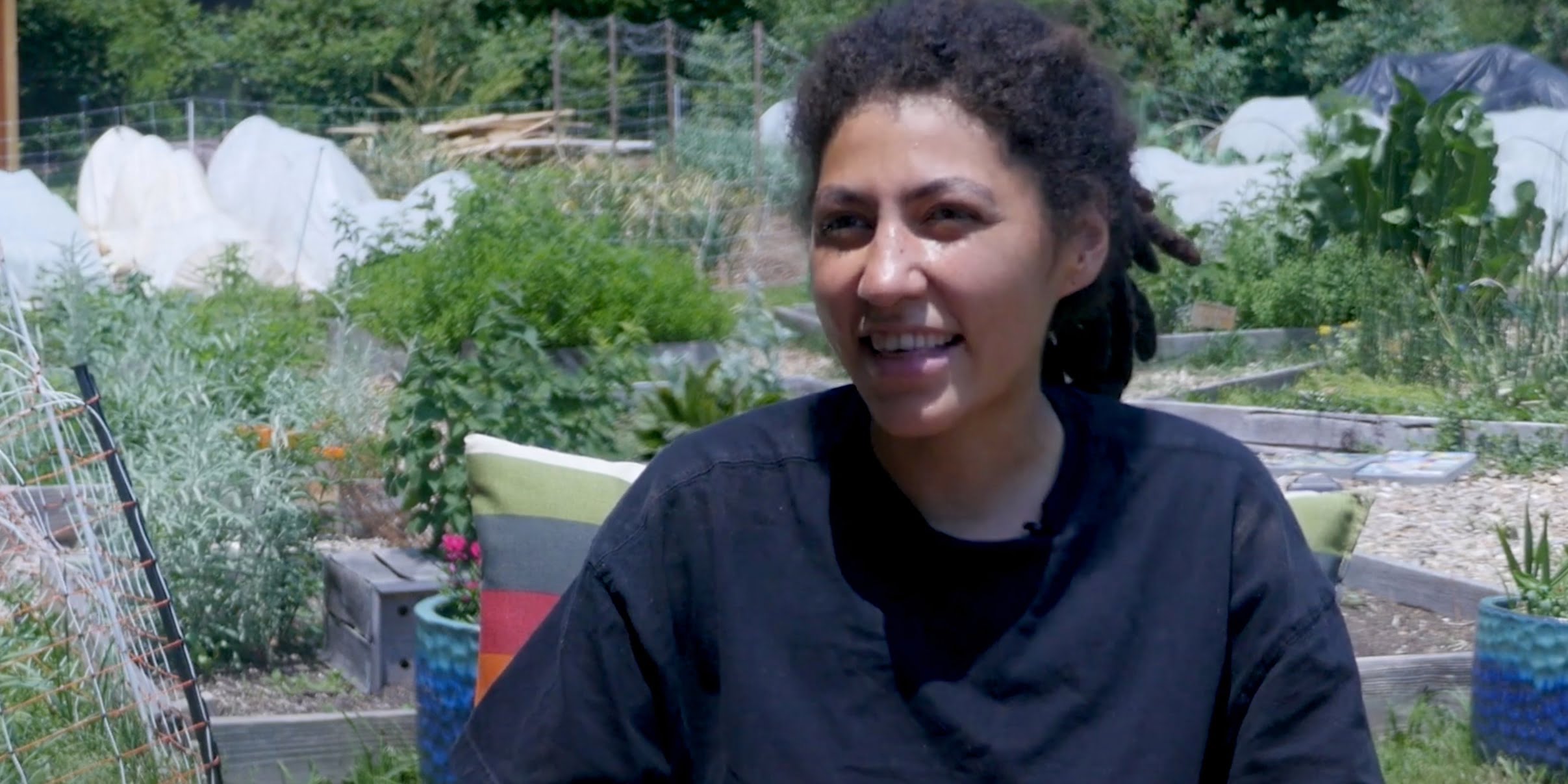Chloe Moore is the farm manager for Southside Community Farm, an urban food space in the historically black Southside neighborhood in Asheville, NC.
My name is Chloe Moore. Welcome to Southside Community Farm. This neighborhood is a historically Black neighborhood and there’s a big diversity of people racially. It is also a neighborhood that has a lot of low-income public housing. This neighborhood has a lot of elders. A lot of people are aging in this neighborhood. And a lot of families. We’re really focused on community food, a lot of free food, our community farmers market, and things like that that are really focused on the neighborhood.
Being a farmer is a great way to impact your community. It’s a way to impact your environment and to take care of the land but also to take care of people through giving people food. There’s no grocery store in this neighborhood so it can be hard for people to access fresh food. That means that a farm like this is really important and it’s a really great way for people to access healthy food.
I started farming when I was 16 years old. I worked on a small farm in my hometown and that’s when I really fell in love with it completely. I went to Warren Wilson College and I really loved it. It’s a great school for sustainable agriculture. So that’s how I got to the Asheville area, and then I stuck around. I’ve been here for 10 years. There’s so many good things about being a farmer, but I think the best part is that you don’t ever do the same thing twice. You’re always having new problems, new solutions, new things that you’re exploring. You really get to pay attention to fun little things. You always see like a cool bug or like a neat flower and stuff like that. That just like brings me a lot of joy and connects me to nature.
So one special thing about our farm is that a lot of the produce we grow we get to give away for free to our neighborhood. One way we do that is through our free fridge. That’s open all the time and people can just come and get free fresh food for their families.
We grow a big diversity of stuff on this farm. Now it’s just getting into summer, so we’re growing tomatoes, peppers, okra, squash. We’re also growing collard greens and lettuce and beets and carrots. We grow onions and garlic and lots of herbs. Green beans like lots of sun. They like it to be to be warm. They’re a summer crop and they need well-drained soil. So an interesting fact about green beans is that they’re not all green. There are purple green beans, red green beans. Today I’m going to plant some green beans that are going to be green with purple spots.
We only sell our produce in one place, and that is at our own farmers market. We have a BIPOC farmers market once a month. We sell produce here and we also invite other vendors, farmers artists, craft people to vend. Our role is to be a green space in a neighborhood that’s urban. So it’s a place that people can come and can enjoy being outside. It’s a place that people can get free food and it’s a place that people can come together and access community and connect over food. We definitely see our farm growing in this community. We would love to access more plots of land and have a developed develop a patchwork of urban agriculture. We would love to be able to both sell more food and give more food away. One way we really want to do that is through a mobile market and have like a truck or a trailer and be able to drive around the neighborhood and sell or give away produce that way.
This video was created as part of ASAP’s Growing Minds Farm to School program. Resources for including these as part of a classroom curriculum are available on the Growing Minds website.

